Tips and tricks to help maintain your road bike this winter
Here's a handy list of pointers to help keep your road bike running that little bit smoother this winter, rim brakes included.
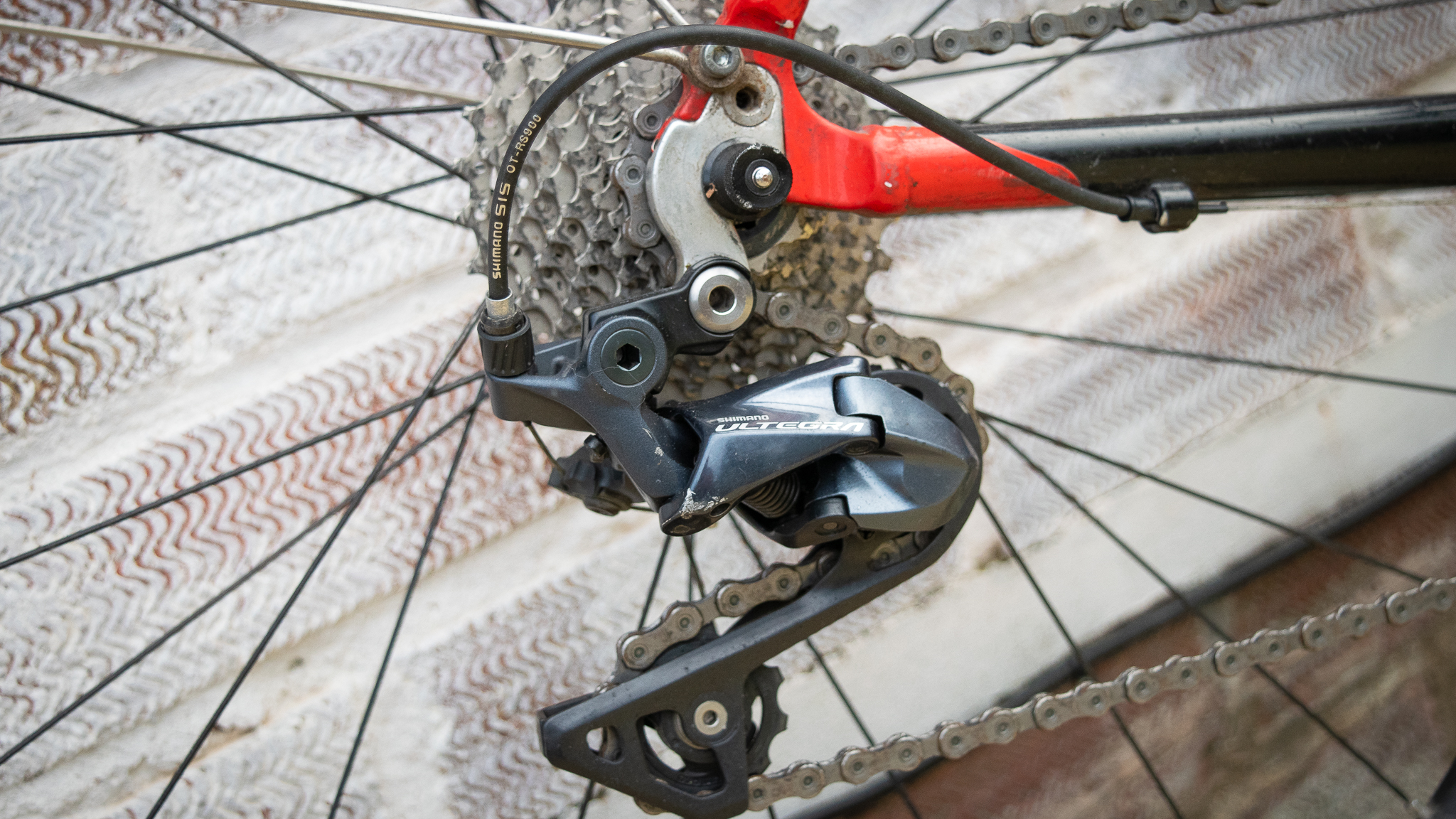
It's November, which means Winter is well and truly here for most of us, in the Northern Hemisphere at least. It's also winter week here at Cyclingnews which means some extra content to help you with everything related to winter riding this week.
We all know wet and mucky winter road conditions are harsher on road bikes than dry summer ones. Bikes will often get a lot dirtier on a ride and water, salt and mud can all accelerate wear on various components.
Some riders diligently look after their winter bike/s and others will coax the machine through to the spring as its condition slowly deteriorates until it gets flung into the garage and forgotten about for the summer. As a mechanic I've worked on my fair share of both and my advice would be that maintenance little and often is the key to a properly maintained and safe bike. Don't let things go too far before tackling an issue or taking it to the bike shop, ensuring your machine is properly maintained is part and parcel of being a cyclist.
Below is some advice, as well as tips and tricks that will help maintain your bike and keep it running that little bit smoother, they should also crucially help you avoid any key servicing bills if an issue goes too far. They are all things I've done to mine or customers' bikes, I hope you find at least one useful. Check out gravel bike tips and tricks if you ride off-road too.
The less water the better
I'll risk sounding like a broken record here to stress the point that generally the less water your bike sees the better. If you're not stripping your bike semi-regularly then water from lots of washing will work its way inside the frame and contribute to corrosion, accelerated bearing wear and just general mess.
Below is an example of a headtube where water was present after lots of washing, I'm talking droplets of water and plenty of moisture on the steerer tube and in the bearings seats and on the bearings. A lack of grease as can be seen on the upper bearing cup or seat below is a good example of how corrosion can start to occur.
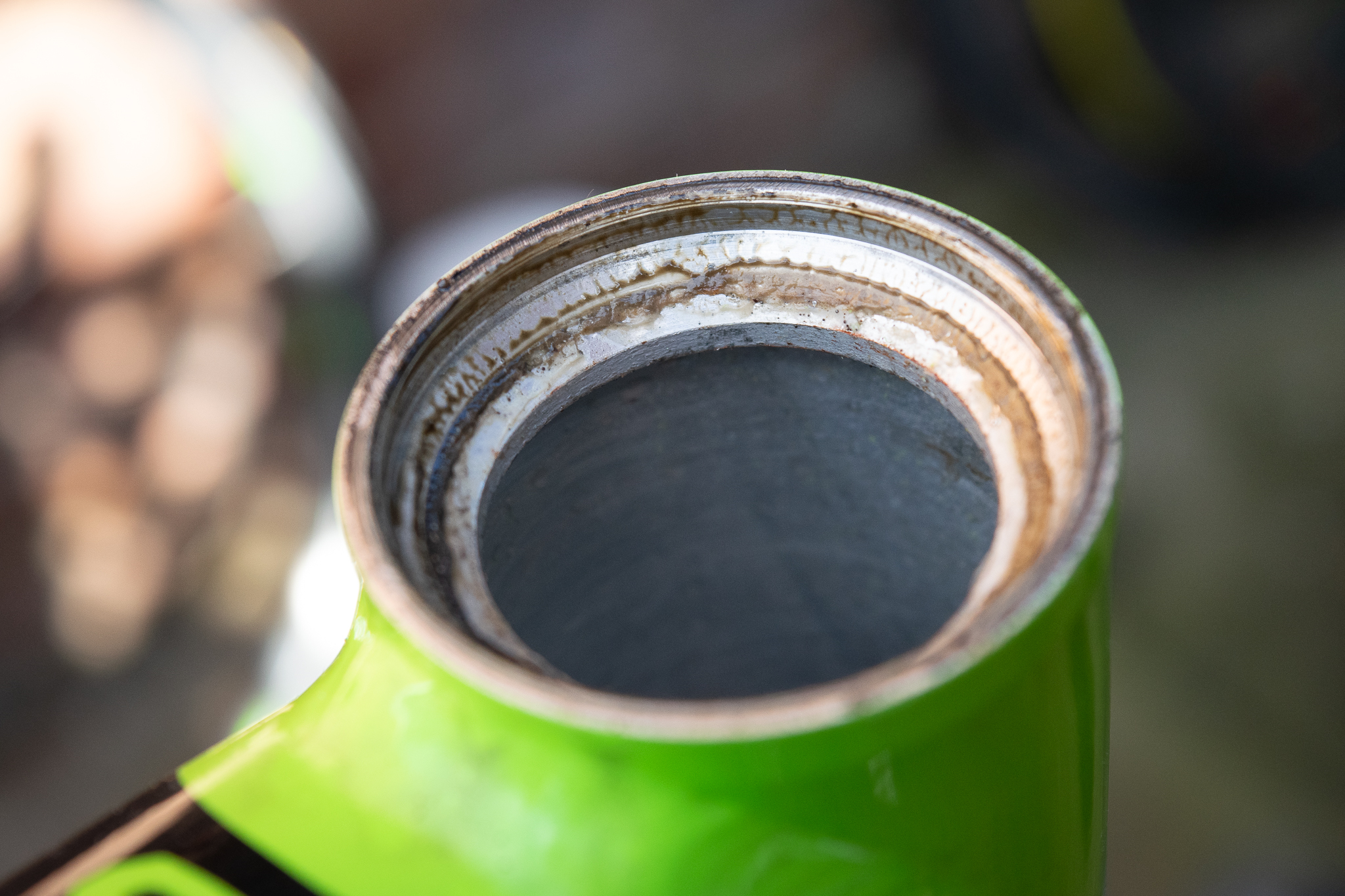
If you get back from a ride and your bike is filthy, a quick, gentle blast with the hose is a great way to clean it up fast, I do it myself sometimes. But I would recommend using the least amount of water you can. Ignore the videos of bike washing you see online where hundreds of gallons of water seem to get used. I've replaced dozens of worn-out bearings on people's bikes that are months old because they have overwashed them and ruined the bearings.
The latest race content, interviews, features, reviews and expert buying guides, direct to your inbox!
And the Tour de France and pro bike washing we have all seen videos of? Pro mechanics can strip a bike whenever they want and have spare parts and bearings on tap. Their no expensive spared maintenance regime is a little different to most regular riders. One thing you can take from pro mechanics is the purchase of a compressor and airline if you want to go that far, it's great to rapidly dry components and your frame and can help with tubeless setups as well.
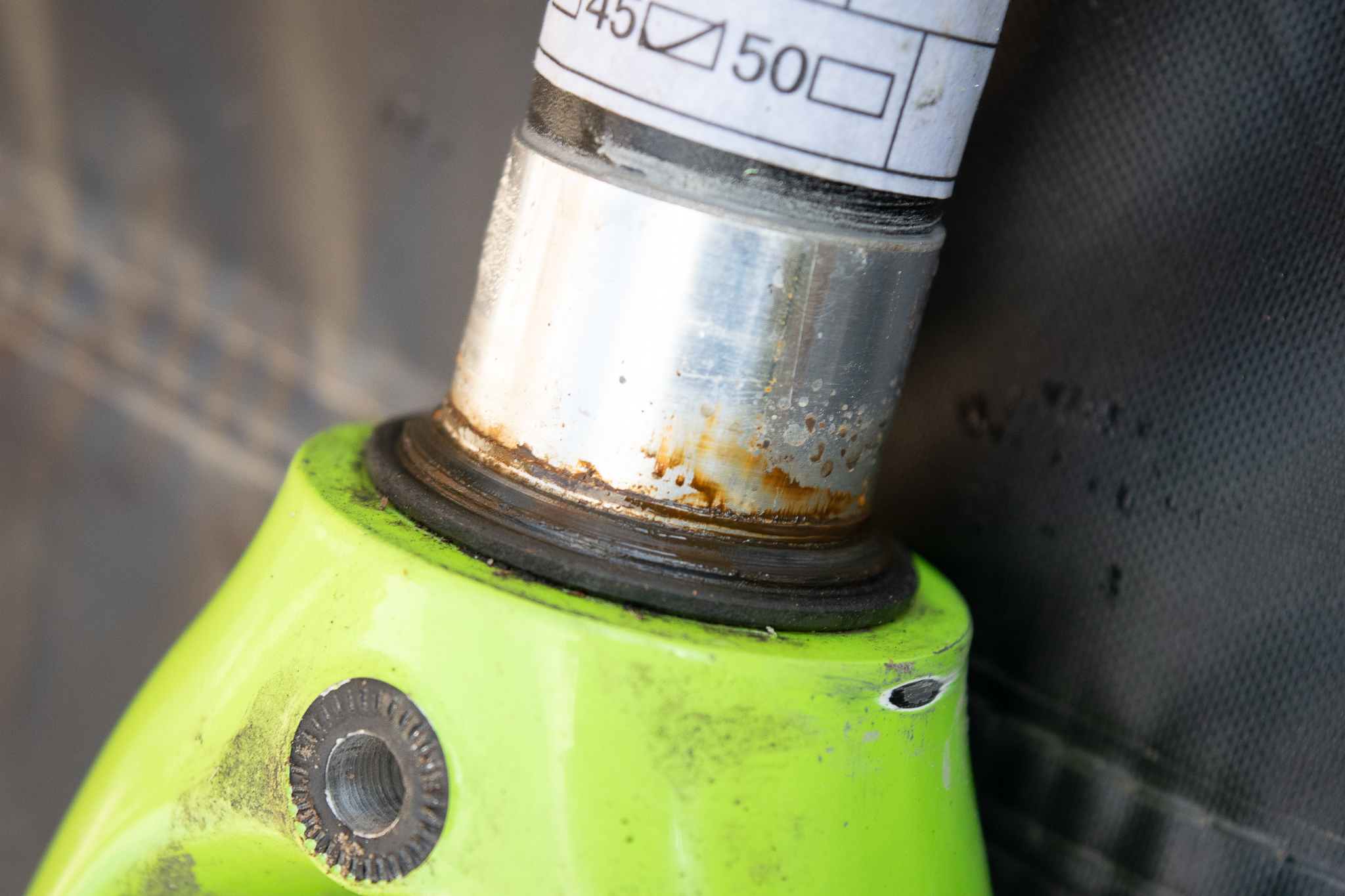
Drivetrain care and lube
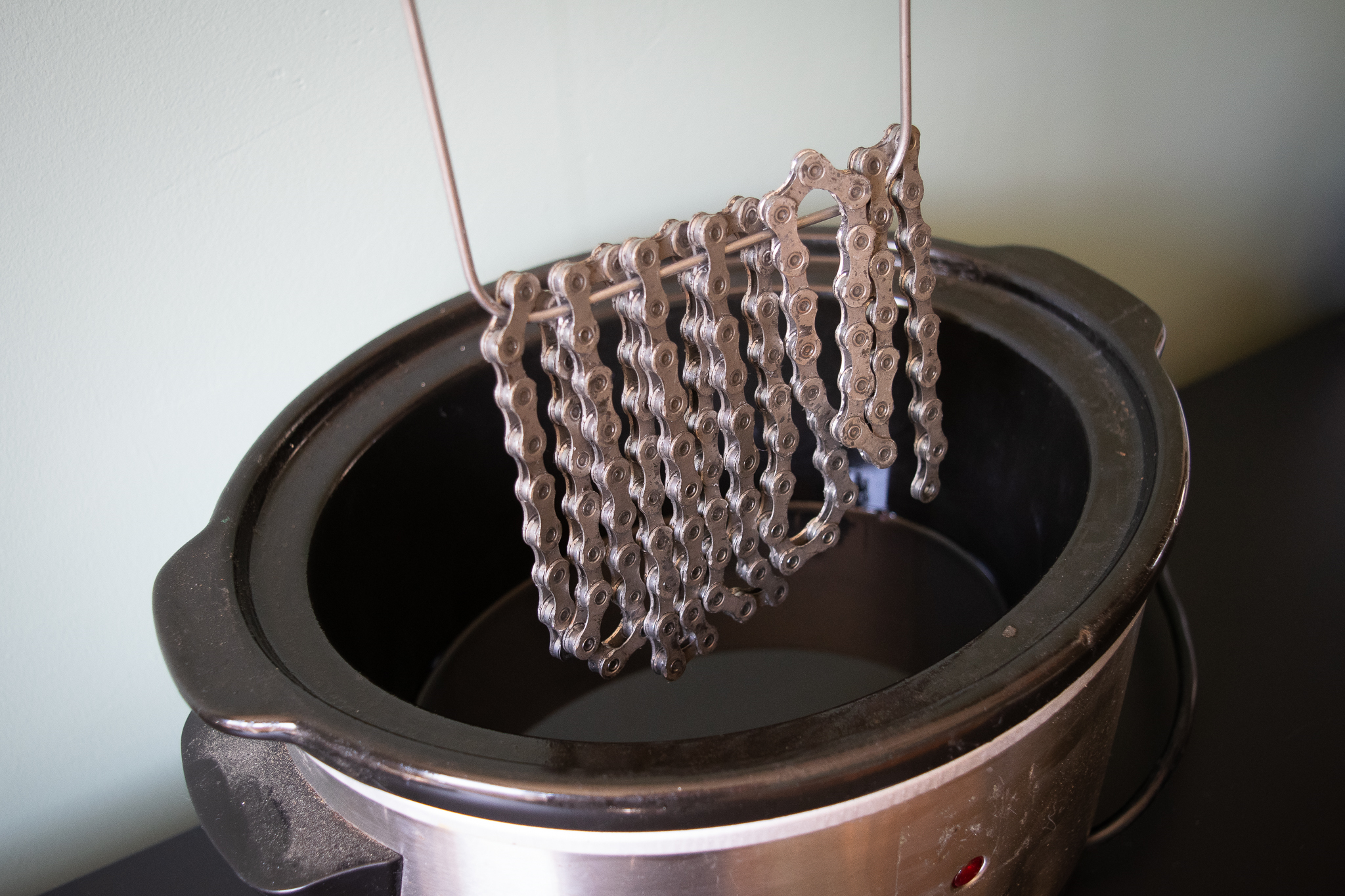
It can be an in-depth topic but it's safe to say keeping your drivetrain and chain as clean as possible and correctly lubricated will help performance.
Check out our best chain lube and best chain wax buyers guides for lots more information and our review of Smoove a cheap, yet top-performing wax lubricant.
Braking...
Braking and being able to stop safely should be your top priority. Water and cold temperatures can often to lead to corrosion as mentioned.
This is probably my top winter tip: If your disc brakes use a threaded pin or bolt to secure the brake pads it's a good idea to remove this every few weeks, clean and lightly re-grease it. If your pads wear out and you can't remove the pin to change them, a simple job may become very lengthy, time-consuming and expensive, I've handed people some big bills for drilling out seized brake pins.
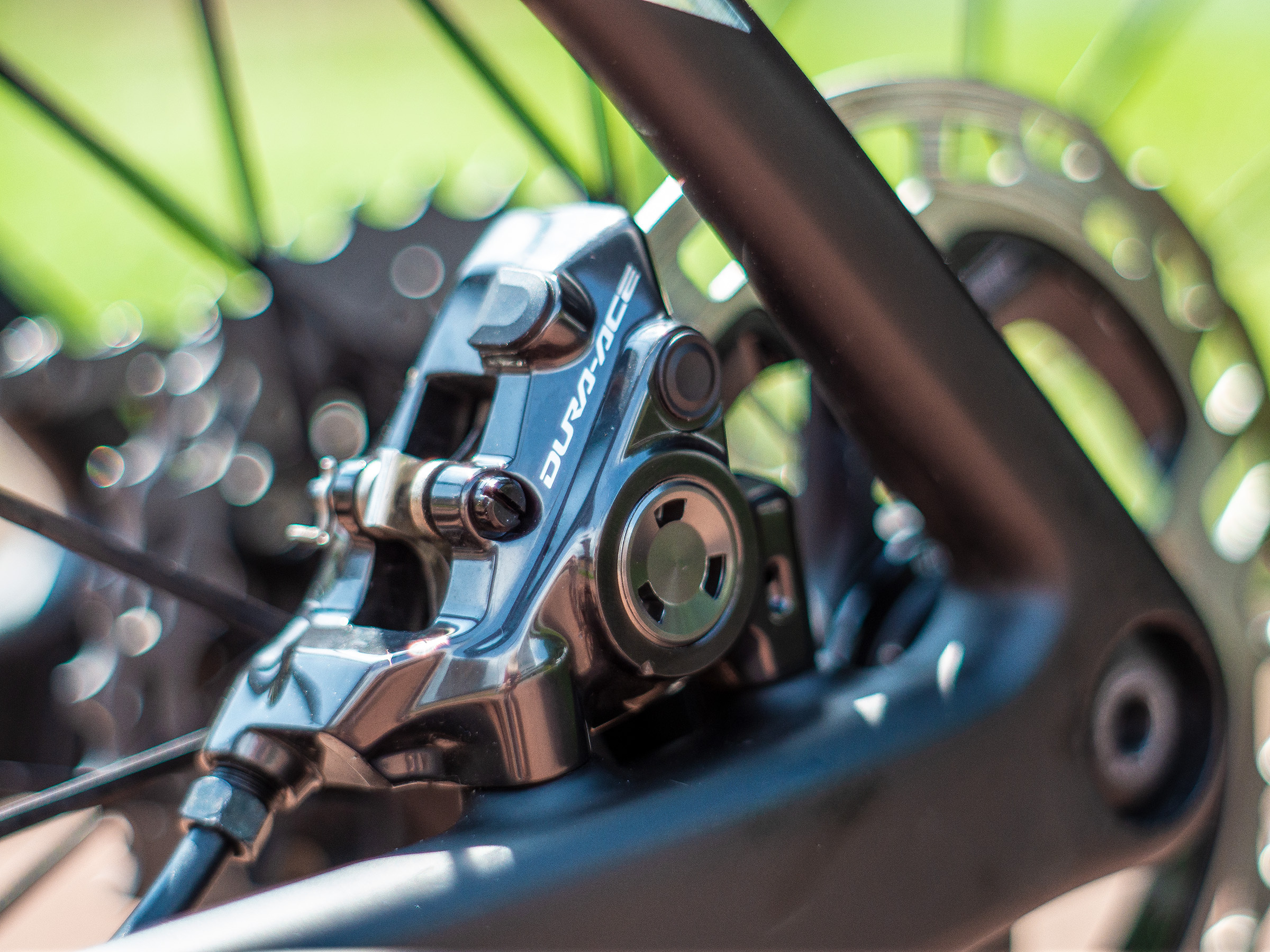
Storage location
It's a smaller point but if your bikes and or equipment are kept in a garage or shed during winter check the area doesn't get too damp or cold/wet as it can rapidly affect certain components and accelerate corrosion.
A leaking and freezing cold garage saw some non-stainless bolts and even my cassette start to form surface rust a few winters ago during cold weather.
Sometimes there isn't much you can do about this, but an extra coating of WD40 or similar on bolt heads or surfaces that show signs of rust will help whilst they are in storage, you could consider a waterproof bike cover too.
I've discussed overwashing and corrosion with customers and it turned out to be their garage conditions harming their bikes during the depths of winter.
Rim brake specific tips
Rim brake riders, we've got you covered too. Here are a few pointers regarding rim brakes that will help you get that little bit more out of your system.
Rim brake pads themselves will pick up contaminants over time and often end up with slivers of metal stuck into the pad itself when they contact your rim every time you break accelerating wear, it can also sound terrible. Check your pads every few weeks and pick out any shards with a Stanley blade or pick.
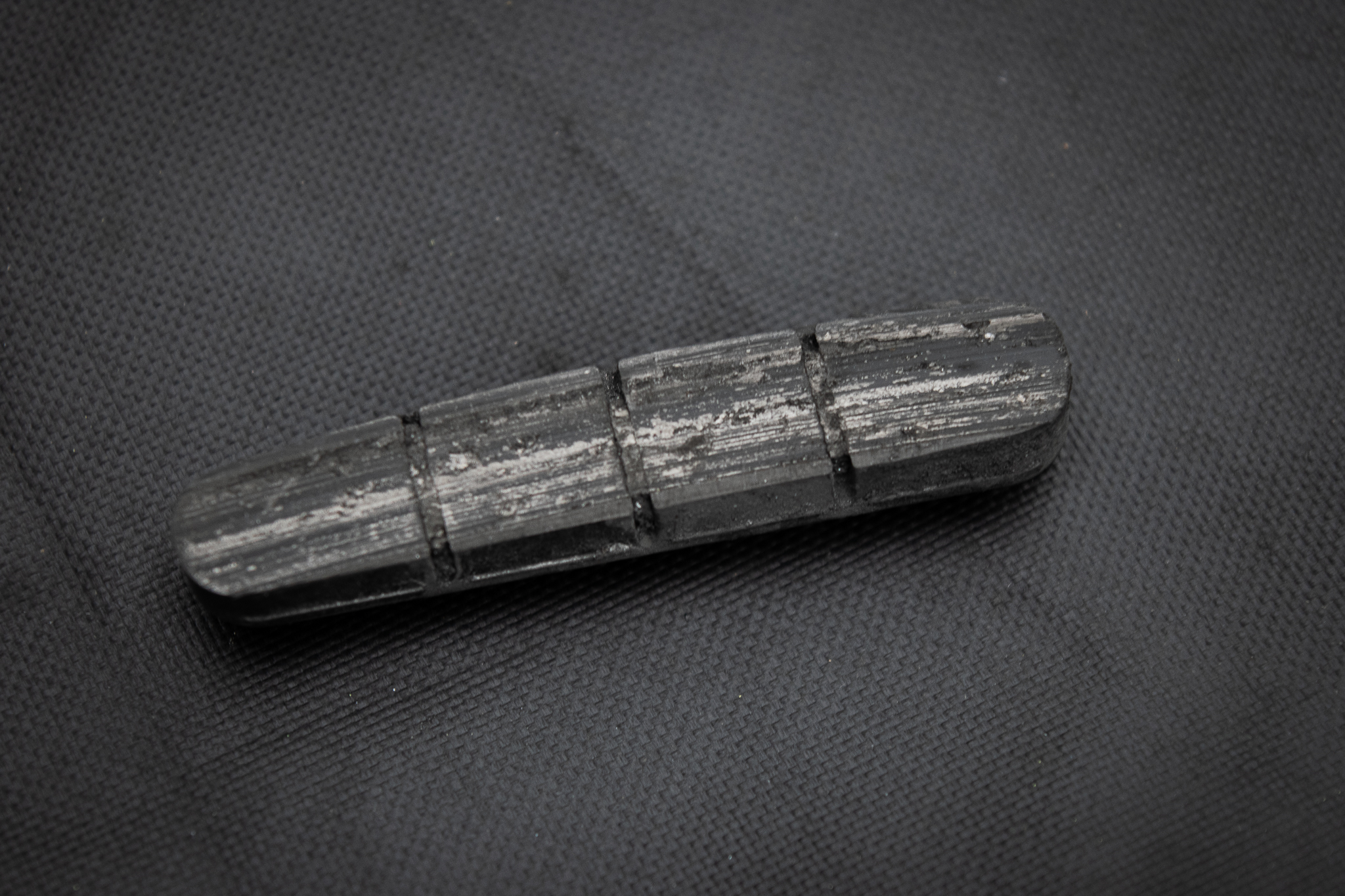
Front rim brake calipers generally stay put for long periods of time and the drilling at the back of the fork for the caliper bolt can often get filled up with muck and gunk over time. A seized and partially rounded off caliper bolt can be a nightmare to undo if the caliper needs to come off for work.
Make sure this area stays clear of muck by cleaning it or even tape it up for winter. Mudguards will also help you here.
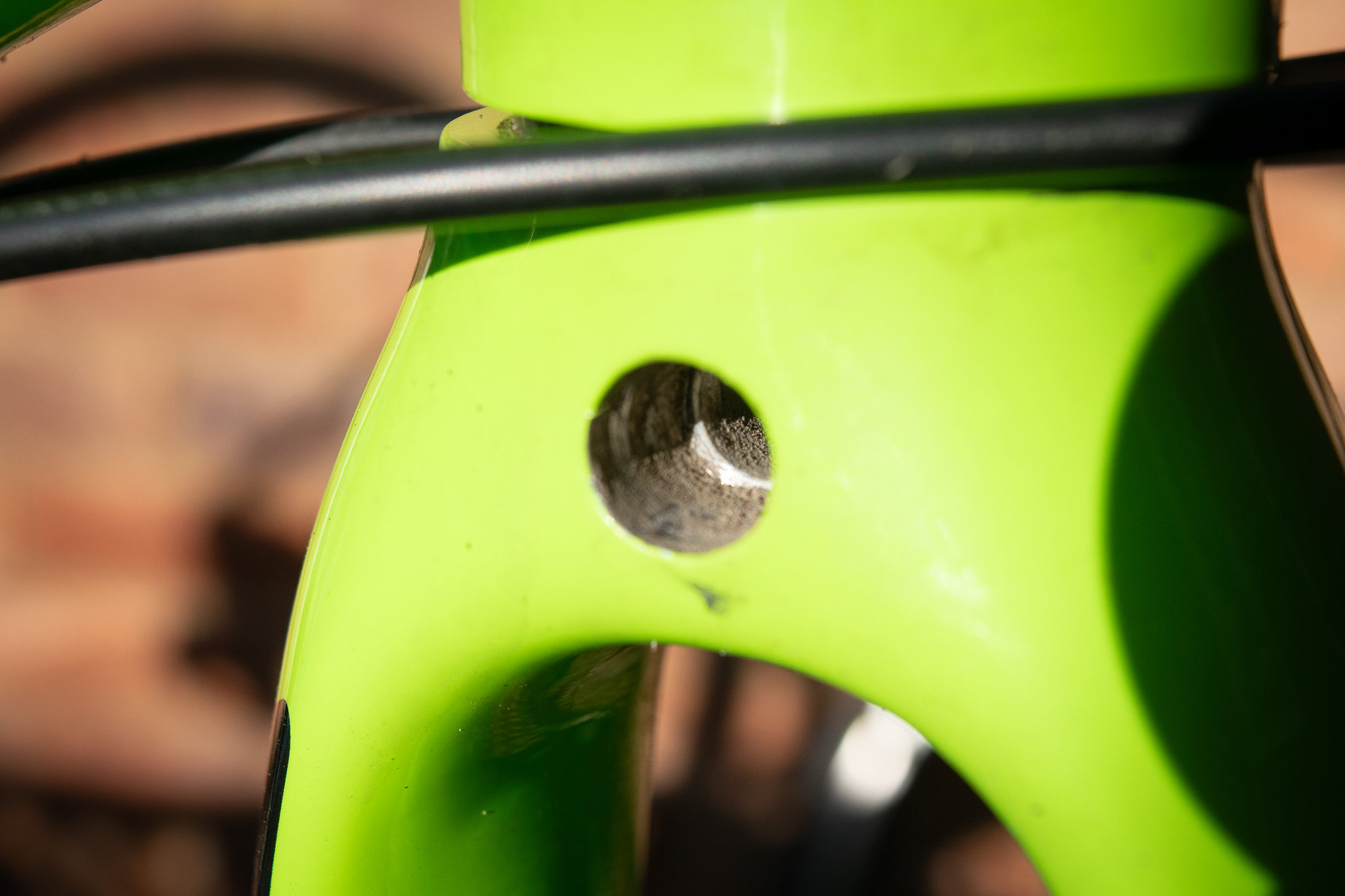
Keep your rims as clean as you can. It will help your brakes feel a lot better, reduce noise and prolong rim and pad life.
You can just use a dry cloth to do this, if your rims are a little mucky you will be amazed at what comes off them. It's an easy and satisfying job, just maybe do it with some gloves on. You can also finish them with a wipe-down with Isopropyl alcohol if you want them really clean.
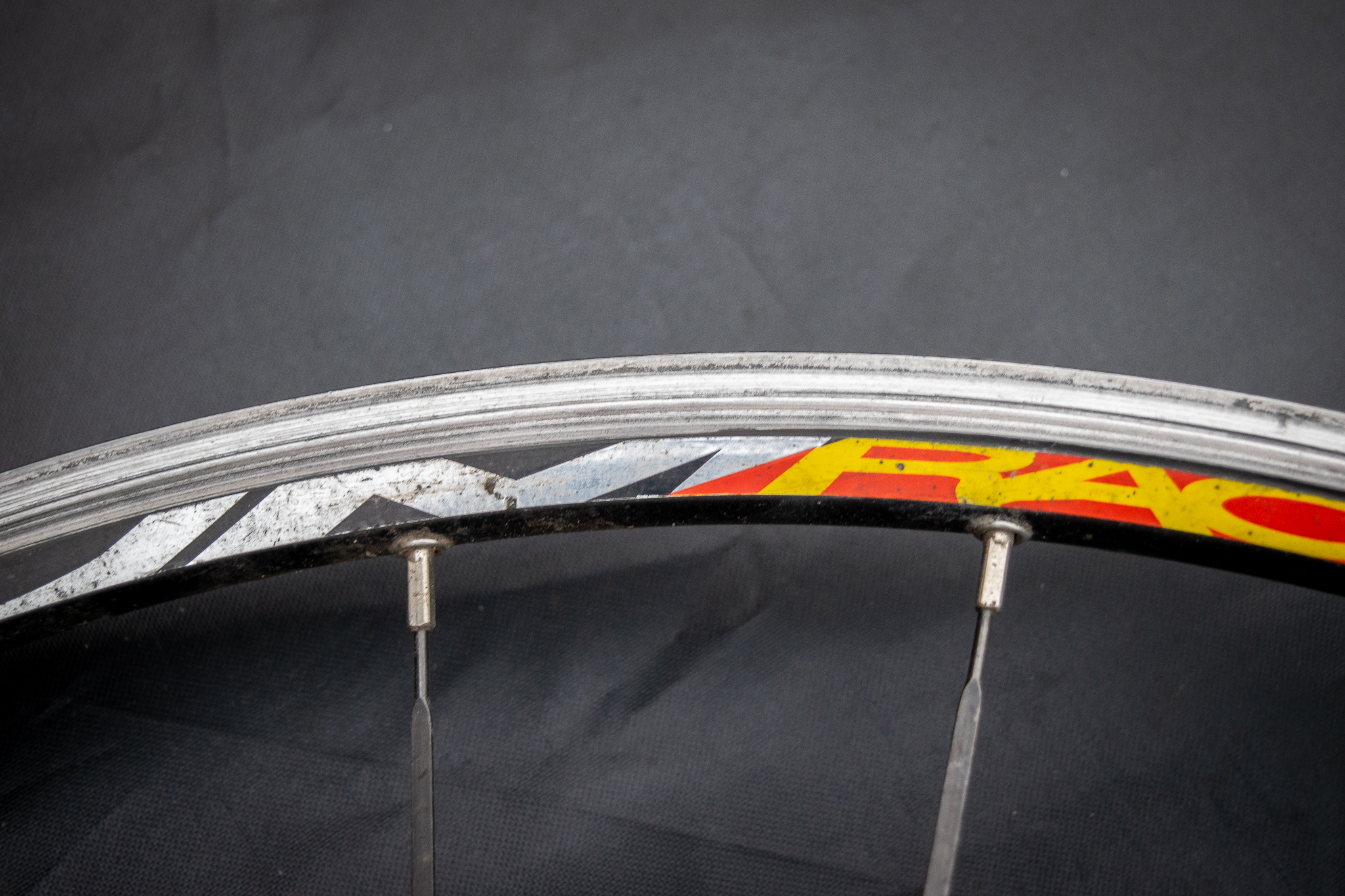

Tom joined the Cyclingnews team in late 2022 as a tech writer. Despite having a degree in English Literature he has spent his entire working life in the cycling industry in one form or another. He has over 10 years of experience as a qualified mechanic, with the last five years before joining Cyclingnews being spent running an independent workshop. This means he is just as happy tinkering away in the garage as he is out on the road bike, and he isn’t afraid to pull a bike apart or get hands-on with it when testing to really see what it’s made of.
He has ridden and raced bikes from an early age up to a national level on the road and track, and has ridden and competed in most disciplines. He has a keen eye for pro-team tech and enjoys spotting new or interesting components in the wild. During his time at Cyclingnews, Tom has already interviewed some of the sport's biggest names including Mathieu van der Poel, Tadej Pogačar and Alberto Contador. He's also covered various launches from brands such as Pinarello, Ridley, Specialized and more, tackled the Roubaix Challenge sportive aboard his own rim-brake Cannondale SuperSix Evo, tested over 20 aero helmets in the wind tunnel, and has created helpful in-depth buying advice relating to countless categories from torque wrenches to winter clothing.